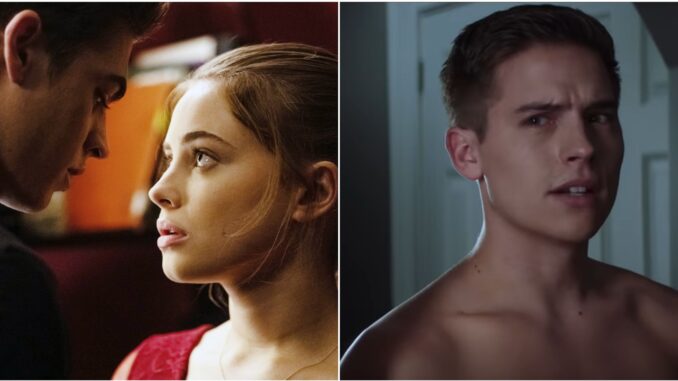
The cinematic adaptation of a beloved novel is rarely a mere translation; it is, more often, a perilous tightrope walk between fidelity and artistic interpretation, commerce and creative license. When a studio undertakes to bring a story like "After Everything" to the screen, particularly one with a passionate, pre-existing fanbase, they are entering into a sacred, albeit unwritten, covenant with their audience. To breach that covenant by excising cherished characters or deviating significantly from the plot is not merely an artistic choice; it is a declaration that inevitably ignites a digital inferno of fan backlash, forcing the studio into a public reckoning with its decisions.
The root of this predictable outrage lies in the deeply personal relationship readers forge with a story. A novel is an intimate experience, a world built brick by emotional brick in the reader's imagination. Characters become confidantes, friends, even reflections of self. Their fates are invested with genuine emotional weight. When the announcement of an adaptation sparks the promise of seeing these beloved figures brought to life, the anticipation is immense, often bordering on ownership. For fans of "After Everything," a story likely steeped in the emotional complexities and character arcs that define the "New Adult" genre, these connections run particularly deep. They've journeyed with these characters, witnessed their struggles, celebrated their triumphs. To then discover that a key figure has been cut, or a pivotal storyline altered beyond recognition, feels less like an adaptation and more like a betrayal. The film ceases to be "their" story; it becomes an impostor, a hollowed-out imitation.
Conversely, studios operate within a crucible of constraints – financial, logistical, and temporal. A 400-page novel cannot simply be dropped onto the screen without extensive re-evaluation. Runtime dictates pacing, budgets limit cast size and location shoots, and actor availability can necessitate character consolidations. Furthermore, a film often needs to appeal to a broader audience than the original book, requiring adjustments to tone, focus, or even the narrative's central message. The "After Everything" studio might argue that certain characters, while beloved in print, did not serve the film's streamlined narrative arc, or that their storylines were too peripheral to justify their inclusion in a two-hour feature. They might contend that certain book deviations were necessary to enhance cinematic tension, condense timelines, or create a more satisfying visual experience for those unfamiliar with the source material. These are valid concerns from a production standpoint, but they rarely resonate with a fandom that views "necessity" as a thinly veiled excuse for disrespect.
When the news of character cuts and book deviations broke regarding "After Everything," the backlash was instantaneous and amplified by the echo chamber of social media. Twitter feeds erupted with furious hashtags, Reddit threads dissected every perceived slight, and review aggregators became battlegrounds. Fans, armed with detailed knowledge of the source material, meticulously cataloged every omission and alteration, framing them not as creative choices, but as fundamental failures. The studio found itself in the unenviable position of having to respond to this digital inferno, a public relations tightrope walk where every word is scrutinized for sincerity, defensiveness, or further insult.
The studio's response, often a carefully worded statement or a series of interviews with the director and cast, becomes an exercise in diplomatic damage control. They might offer mea culpas, explaining the "difficult decisions" made in the pursuit of "the best possible film." They might cite budget restrictions, pacing issues, or a desire to focus on the "core" relationship. They might even promise that future installments (if any) would attempt to incorporate elements previously omitted. The challenge lies in acknowledging the fans' hurt without fully validating the idea that their artistic choices were wrong. It's an attempt to rebuild trust while subtly asserting their creative authority. For "After Everything," this likely involved explaining why Character X, who played a significant role in the book's emotional support network, had to be merged or removed, or why a beloved side plot was deemed extraneous to the central romance. The effectiveness of such a response hinges entirely on its perceived honesty and whether it manages to soothe the feeling of betrayal without alienating the broader audience they also hope to attract.
Ultimately, the saga of "Studio Responds to Backlash Over Character Cuts and Book Deviations in After Everything" is a microcosm of the perennial struggle inherent in adaptation. It illustrates the profound emotional investment readers have in their stories, the pragmatic realities faced by filmmakers, and the volatile nature of audience reaction in the digital age. There is no easy answer, no perfect formula for transforming a novel into a film. The studio learns, often painfully, that while they hold the reins of production, the narrative heart truly resides with the audience who first fell in love with the words on the page. And in the modern era, that audience possesses an unprecedented collective voice, capable of turning creative liberty into a very public reckoning.
